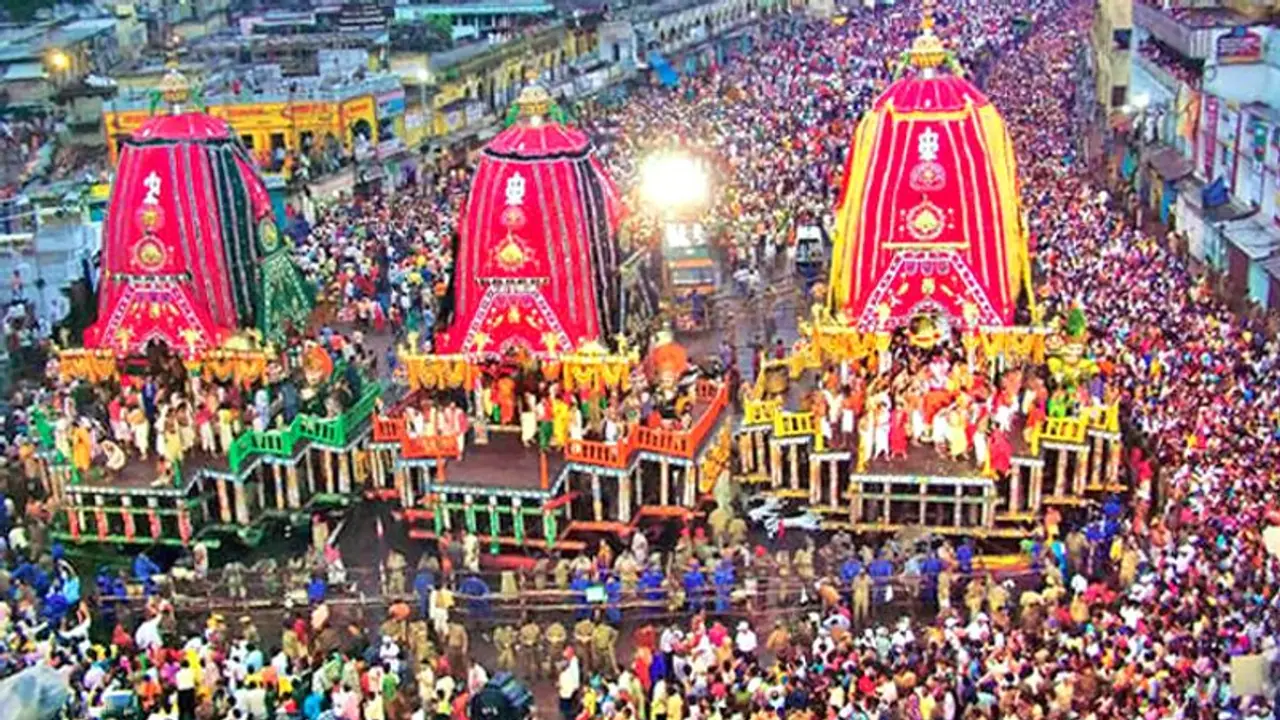There have been suggestions that the Odisha government can bring in an ordinance to bypass the Supreme Court’s order on staying the Rath Yatra, as was done by the Tamil Nadu government to continue with the practice of Jallikattu.
Puri: The Supreme Court's decision to stay Lord Jagannath's Rath Yatra, one of the most popular festivals of Hindus, this year in view of the COVID-19 pandemic has left the multitude of artisans connected to the construction of the grand chariots in tears.

The makers of the gigantic chariots, which is pulled by lakhs of devotees, include a number of biswakarmas (carpenters), blacksmiths, roopakaras (painters), darzis (tailors) and 'Bhoi' servitors who supply logs to the carpenters who have been connected to it for generations.
The nine-day Rath Yatra festival in this seaside pilgrim town is set to begin on June 23. The Shree Jagannath Temple Managing Committee and the servitors of the 12th- century shrine have urged the Odisha government to file a fresh application in the Supreme Court, seeking modification of its order.
The Rath Yatra has continued uninterrupted since 1736.
It could not take place 32 times between 1558 and 1735.
"I was shocked to hear the news about the Supreme Court's order. I came to know it when giving final touches to the chariot," said Bijay Kumar Mahapatra, the chief carpenter of 'Nandighosh', Lord Jagannath's chariot.
"Never before I have seen such a situation when chariots will not be used even after being completed. I have been engaged in chariot making since childhood. My father and grandfather also made chariots for the deities," said 65- year-old Narasingha Mahapatra, the chief carpenter of Lord Balabhadra's chariot 'Taladhwaja'.
With tears rolling down his cheeks, Narasingha Mahapatra asked, "What was the point in putting us through corona tests and keeping us in isolation if the chariots will not roll on Bada Danda (Grand Road in front of the shrine)? I cannot tolerate such a situation."
Most of those who were engaged in the construction of the chariots of the deity and his two siblings said that they work not for money, but out of love, affection and above all respect for Lord Jagannath.
"Nobody, including us, can construct such beautiful chariots anywhere other than at the Ratha Khala (temple workshop). It is all the Lord's wishes for which the attractive chariots can be built by the people who have no institutional education," he said.
The carpenters said that the technique of chariot making was passed on by generations and not through any formal education.
Every year the three chariots are made of wood brought from Daspalla forest in Nayagarh district. The government has also exclusive 'Jagannath Bana Prakalpa', a massive plantation project which provides logs for the purpose.
'Nandighosh', the chariot of Lord Jagannath, is the tallest at 45 feet with 16 wheels, while Lord Balabhadra's 'Taladhwaja' is 44 feet high with 14 wheels. Their sister Devi Subhadra's chariot 'Darpadalana' is 43 feet high and has 2 wheels.
About 45 days are required for the construction of the chariots starting from Akshaya Tritiya.
"This year, we were allowed to work from May 8 instead of April 26, the date of Akshaya Tritiya, due to the lockdown.
The state government opened up the Ratha Khala after getting permission from the Ministry of Home Affairs. We worked very hard and completed the construction of the Rathas before time," said Bijay Kumar Mahapatra.
The chariots are decorated with flowers, birds, arches, idols and horses all made of wood. The carpenters were busy giving their final touches on Saturday even after knowing that the apex court's order.
"We are hopeful that the court will change its decision," he said.
The chariots are as a practice dismantled after the festival and the wood is used in the temple kitchen.
"We will not allow it this year. The chariots should be allowed to stand as they are for the devotees to pay their respect," said Rabi Maharana, a young carpenter.
